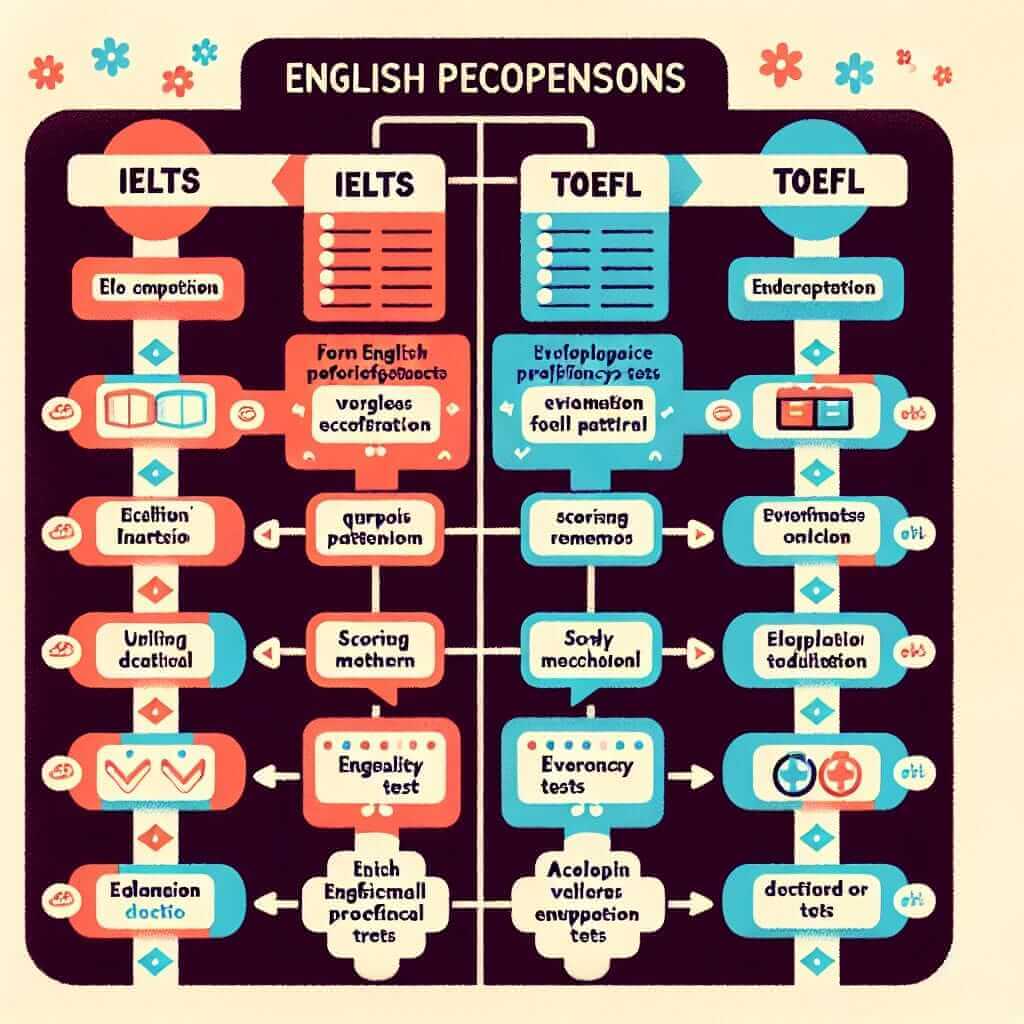As an IELTS instructor with over two decades of experience, I often encounter students wondering about the differences between IELTS and TOEFL. This confusion is understandable, as both are prominent English proficiency tests. However, they cater to different needs and have distinct formats. This article delves into the specifics of each test to help you determine which one best aligns with your goals.
Understanding the Core Differences
While both IELTS and TOEFL evaluate your English language skills, they differ in several key aspects:
1. Purpose and Acceptance:
- IELTS (International English Language Testing System): Primarily designed for individuals seeking to study, work, or migrate to countries where English is the primary language of communication. It is widely accepted in the UK, Australia, Canada, New Zealand, and many other countries.
- TOEFL (Test of English as a Foreign Language): Geared towards students planning to apply to universities or colleges where English is the medium of instruction. It is predominantly accepted in North American institutions, although its recognition is expanding globally.
2. Test Format and Content:
- IELTS: Offers two versions: Academic for higher education and professional registration, and General Training for work experience and migration purposes. Both versions assess four key skills: Listening, Reading, Writing, and Speaking. The Speaking test is conducted face-to-face with a certified examiner.
- TOEFL: Exists solely as an internet-based test (iBT). It evaluates the same four skills: Reading, Listening, Speaking, and Writing. Notably, the Speaking section is recorded and assessed later by multiple examiners.
3. Scoring System:
- IELTS: Employs a band score system ranging from 0 (non-user) to 9 (expert user) for each of the four skills, with an overall band score reflecting the average.
- TOEFL: Utilizes a point-based scoring system with a total score of 120. Each section (Reading, Listening, Speaking, Writing) is scored out of 30.

Choosing the Right Test
Choosing between IELTS and TOEFL depends largely on your individual circumstances and aspirations.
Consider IELTS if you are:
- Aiming to study at a university or college in the UK, Australia, Canada, or New Zealand.
- Seeking professional registration in fields like healthcare or engineering in countries where IELTS is a requirement.
- Planning to migrate to an English-speaking country that accepts IELTS for visa purposes.
- More comfortable with a face-to-face Speaking test.
Consider TOEFL if you are:
- Applying to universities or colleges primarily in the United States or Canada.
- Comfortable with a computer-based test format, including the Speaking section.
- Seeking an internationally recognized English language certification for professional development.
Preparation Tips for Success:
Regardless of which test you choose, thorough preparation is key. Here are some essential tips:
- Familiarize yourself with the test format and content.
- Practice regularly with official sample tests and materials.
- Focus on improving your vocabulary and grammar skills.
- Develop effective time management strategies for each section.
- Consider seeking guidance from an experienced IELTS/TOEFL instructor.
Conclusion:
Choosing between IELTS and TOEFL can be a crucial step in your academic or professional journey. By understanding the nuances of each test, you can make an informed decision that best aligns with your individual goals and requirements. Remember, dedication and focused preparation are crucial for success, regardless of which path you choose.